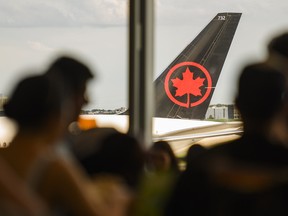Air Canada Flight Attendants Considering Strike Due to Unpaid Work and Financial Strain
The Canadian Union of Bombing Crew and Related Trades (CUBR) is contemplating a potential strike following significant labor issues faced by flight attendants at Air Canada. The union represents 1052 workers, whose primary concerns revolve around unpaid duties performed before flights, such as boarding passengers, and after landing, which are essential tasks but not compensated.
Unpaid Work: A Major Discomfort
Flight attendants are tasked with crucial responsibilities that include handling pre-flight duties like passenger boarding and post-flight activities such as returning checked luggage. These tasks are often unpaid, creating a financial burden for workers, especially those in entry-level positions who may struggle to make ends meet after taking on additional jobs to cover expenses.
Financial Strain and Stagnant Wages
The current starting hourly wage of approximately $30 per hour does not cover the time worked by attendants. This disparity has left many junior staff struggling financially, with some earning less than the minimum wage once unpaid duties are factored in. Inflation further exacerbates this issue, eroding purchasing power and making essential work feel like a burden rather than a professional endeavor.
Comparison to U.S. Practices and Support for Legislation
In contrast, U.S. airlines compensate flight attendants for these pre-flight and post-flight duties, highlighting the lack of such regulations in Canada. To address this national issue, CUBR is advocating for Bill C-415, introduced by NDP MP Bonita Zarrillo in October 2024. This legislation aims to standardize pay practices across Canada, ensuring flight attendants are compensated for all mandatory duties.
Current Negotiations and Potential Outcomes
Negotiations between Air Canada and the union have begun, with CUBR focusing on achieving a deal that avoids disruption but also emphasizes fairness. The union’s stance is clear: they deserve appropriate compensation without resorting to strike action unless necessary.
Conclusion
This potential strike marks a significant event in labor relations, as it could disrupt passenger services while raising broader questions about the airline industry’s practices and regulations. For further insights, readers are encouraged to explore additional resources linked in the article.
End of Article




